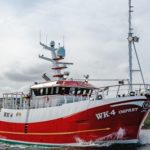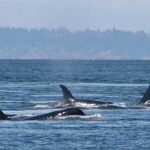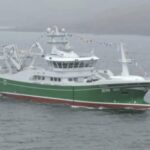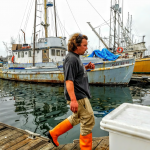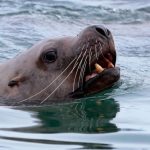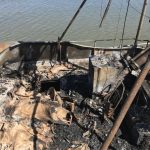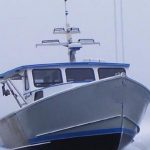Tag Archives: (International Fund for Animal Welfare)
Aquarium scientists ID dead whale found on Martha’s Vineyard
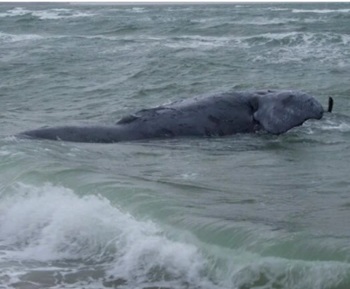 Scientists identified the dead North Atlantic right whale as a 3-year-old female known as #5120. NOAA Fisheries learned that the unnamed whale had washed ashore near Joseph Sylvia State Beach on Martha’s Vineyard on Jan. 28. The animal will undergo a necropsy this week to determine its exact cause of death. The Wampanoag Tribe of Gay Head (Aquinnah) and the International Fund for Animal Welfare secured the whale, according to the aquarium. State law enforcement officials also collected rope entangled around and embedded in the whale’s tail and turned it over to NOAA’s Office of Law Enforcement. In August 2022, researchers found the whale tangled up in fishing gear in the Gulf of St. Lawrence, Canada. Several attempts were made in January and February of 2023 to disentangle the whale after she was located off Cape Cod. more, >>click to read<< 13:01
Scientists identified the dead North Atlantic right whale as a 3-year-old female known as #5120. NOAA Fisheries learned that the unnamed whale had washed ashore near Joseph Sylvia State Beach on Martha’s Vineyard on Jan. 28. The animal will undergo a necropsy this week to determine its exact cause of death. The Wampanoag Tribe of Gay Head (Aquinnah) and the International Fund for Animal Welfare secured the whale, according to the aquarium. State law enforcement officials also collected rope entangled around and embedded in the whale’s tail and turned it over to NOAA’s Office of Law Enforcement. In August 2022, researchers found the whale tangled up in fishing gear in the Gulf of St. Lawrence, Canada. Several attempts were made in January and February of 2023 to disentangle the whale after she was located off Cape Cod. more, >>click to read<< 13:01
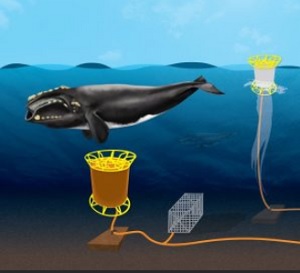
Massachusetts state regulators reject plan to use ropeless lobster traps
The proposal, submitted by a group of lobstermen organized under the name “Pioneers for a Thoughtful Coexistence,” asked regulators to allow them to set as many as 200 ropeless traps in areas along the South Shore, where lobster fishing is closed three months a year. DMF Director Daniel McKiernan denied the plan and laid out three reasons for his decision, the first being that the proposal “lacks a study design that will contribute meaningfully to further understanding the efficacy of ropeless fishing.” >click to read< 08:02
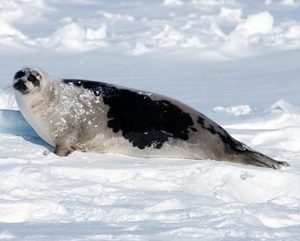
1984 – Liberal cabinet was split on seal hunt, while refusing to give into ‘blackmail’ from animal rights groups
The controversial Atlantic seal caused caused a major split in the Liberal cabinet of 1984, secret documents obtained by Blacklock’s Reporter show. Ministers cursed the International Fund for Animal Welfare while acknowledging the seal hunt was “relatively minor.” Some ministers feared animal rights groups would lead a boycott of Canadian fish products at McDonald’s and other restaurant chains. >click to read< 09:31
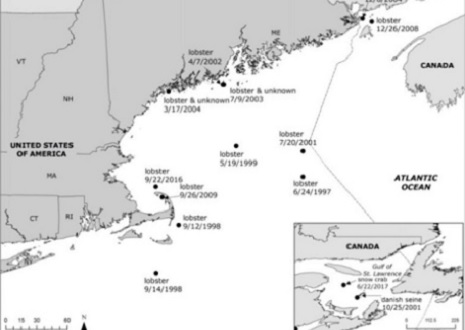
North Atlantic Right Whale: How to kill a species with Fake News, from National Geographic of all places!
“Fishing without vertical lines is what is going to save this species.“ says CT Harry of the IFAW who work hand in hand with NOAA. A ridiculous statement in view of the 18 cruise ship strikes in the Gulf of St. Lawrence (GSL) in the past few years, in all of NE over 20 years. ¼ whale per year by the lobster industry. Eighteen ship strikes in the GSL over the past 3 years averages 6 per year. These people are killing 24 whales while those people kill one. by Jim O’Connell >click to read< 13:22
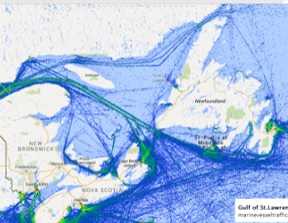 Most likely Carnival Cruise Lines is responsible for 18+ Right Whale deaths in the past 3 year, at which rate they would soon be extinct. – Human caused Right whale deaths have suddenly, in sync with a plummeting whale birthrate, put the right whale on the path to extinction. Why their birth rate, births per year, declined since a tremendous surge in 2000-2009 from 350 to 500 is unknown. In 2018 it hit bottom as no calves were born. >click to read<
Most likely Carnival Cruise Lines is responsible for 18+ Right Whale deaths in the past 3 year, at which rate they would soon be extinct. – Human caused Right whale deaths have suddenly, in sync with a plummeting whale birthrate, put the right whale on the path to extinction. Why their birth rate, births per year, declined since a tremendous surge in 2000-2009 from 350 to 500 is unknown. In 2018 it hit bottom as no calves were born. >click to read<
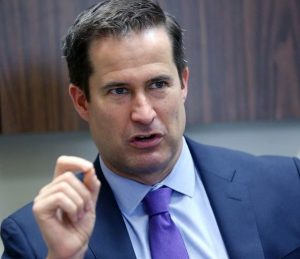
Moulton praises local lobsterers for staying at whale rule table at a teleconference they were’nt invited to
U.S. Rep. Seth Moulton on Monday called the Maine Lobstermen’s Association shortsighted for stepping away,,, “It limits their involvement in the solution going forward,” Moulton said on a teleconference organized by the International Fund for Animal Welfare.,,, Monday’s teleconference was billed as an opportunity,,, The sole discussion on technology Monday centered on ropeless fishing gear. The panel, included two IFAW staffers and Rob Morris, a sales engineer with EdgeTech, a company that has developed a ropeless gear fishing system. No fishermen were represented. “We did not extend an invitation,” Ramage said. >click to read< 08:08
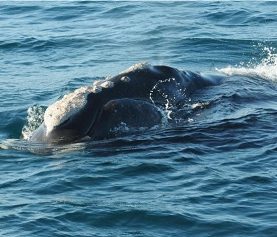
IFAW Officials Disappointed with Lobsterman Association’s Position on Whale Issue
The Yarmouth Port-based International Fund for Animal Welfare is expressing disappointment for the Maine Lobstermen’s Association decision to withdraw its support for the Take Reduction Team Agreement concerning right whales. The association withdrew support last week due to what it calls “serious flaws in the data” presented during the agreement process.,, The MLA review of the data also found that current whale protection measures have been effective. Changes to the right whale plan in 2009 and 2014 resulted in a strong downward trend in the incidence of entanglement cases involving U.S. lobster gear, from seven cases prior to 2010 to only one case since then. >click to read< 12:40
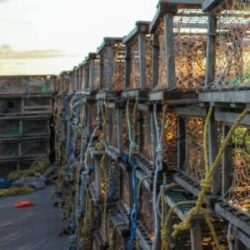
Massachusetts Lobstermen Test Ropeless Fishing Gear to Save Right Whales
Researchers say conservationists and the fishing industry must work together to save the critically endangered North Atlantic right whale. Only about 400 of these whales are left living in the wild, and scientists say human activity is to blame. Proposed federal regulations,,, But these measures drastically reduce the number of lines lobstermen are allowed to have in the water. That’s why Massachusetts lobstermen are eager to try new technology that would enable them to set their traps without a vertical line. Patrick Ramage is director of marine conservation for the International Fund for Animal Welfare.,,, >click to read<10:33
Ropeless Fishing Gear Could Aid Maine’s Lobster Industry, Endangered Whales – >click to read<
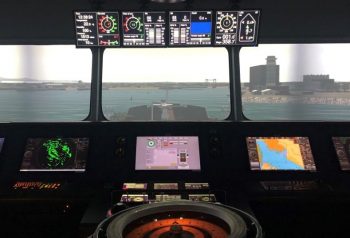
How Ship Strikes Have Become The Greatest Threat To Right Whales
This is the first of a two-part report explaining how vessel strikes happen, why they’re increasing and what’s being done to stop them. In the last month, eight North Atlantic right whales have been found dead in Canada’s Gulf of St. Lawrence, including two members of the critically endangered species this past week. Canadian authorities say work to determine these new whales’ cause of death is ongoing. Whatever the cause of these latest deaths, researchers worry collisions with ships are increasingly to blame. >click to read< 20:24

Researchers regroup in wake of 4 right whale deaths
It’s been a deadly month for the endangered mammals, with the carcasses of two other whales — an adult female and a 9-year-old male — reported June 4 and June 20, also in the Gulf of St. Lawrence. Photo analysis of the carcasses found Tuesday identified one as a 33-year-old male named Comet and the other as an unnamed 11-year-old female who had no documented calf, according to New England Aquarium’s Anderson Cabot Center for Ocean Life. The two carcasses were seen near the Acadian Peninsula in New Brunswick and west of the Magdalen Islands in Quebec, according to Canadian officials.,,, The National Oceanic and Atmospheric Administration is taking part in preplanned talks with the Canadian government on North Atlantic right whale protections this week in Halifax, Nova Scotia, NOAA spokeswoman Jennifer Goebel said. >click to read<20:56
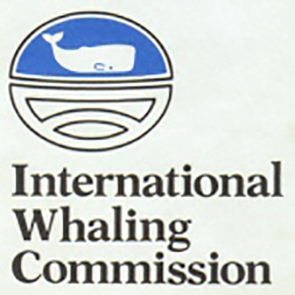
Pro and anti whaling nations brace for battle in Brazil
Pro- and anti-whaling nations are set for a showdown when the International Whaling Commission (IWC) meets in Brazil from Monday as Japan leads an assault on a three-decade old moratorium on commercial whale hunting. Tokyo heads into the biennial meeting as chair of the 88-nation body determined to shake-up what it says is a dysfunctional organization mired in dispute and unable to make key decisions. But Japan’s package of proposals, entitled “The Way Forward,” has left conservationists seething even before delegates have taken their seats at the 67th IWC meeting in the Brazilian surfing resort of Florianapolis. >click to read<17:59
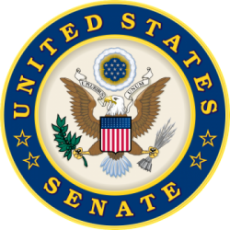
Booker, Carper, Nelson Introduce Bicameral Bill to Establish Grant Program for Right Whale Conservation
U.S. Senators Cory Booker (D-NJ), Tom Carper (D-DE), and Bill Nelson (D-FL), along with Senators Bob Menendez (D-NJ) and Kirsten Gillibrand (D-NY) have introduced a bill to protect the highly endangered North Atlantic right whale. Booker is a member of the Senate’s Environment and Public Works Committee, Carper is the top Democrat on the Environment and Public Works Committee, and Nelson is the top Democrat on the Senate’s Commerce Committee, which oversees ocean policy. Rep. Seth Moulton (D-MA), along with Reps. Raul Grijalva (D-AZ), Jared Huffman (D-CA), and Bill Keating (D-MA), has introduced a companion measure in the House of Representatives. >click to read<18:46
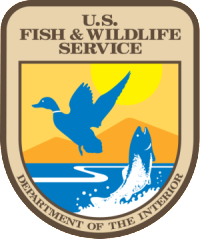
Fish and Wildlife Service official reportedly violated conflict of interest rules
Richard Ruggiero, chief of the Division of International Conservation at the U.S. Fish and Wildlife Service, may have violated federal ethics rules by his involvement in agency grants that provided monetary benefit to a family member, according to a Feb. 20, 2018, Department of Interior Inspector General report. “We found that Ruggiero violated federal laws and regulations by participating in an FWS cooperative agreement that financially benefited his family member, and neither Ruggiero nor his family member disclosed their relationship in writing to the FWS,” the report said. >click to read< 17:22
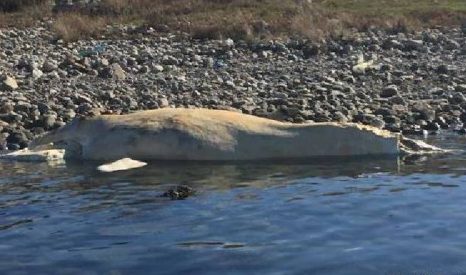
Another North Atlantic right whale found dead on Cape Cod
Yet another North Atlantic right whale carcass has been discovered, the sixteenth confirmed death of the endangered species this year. The International Fund for Animal Welfare says the carcass was found on Nashawena Island, south of Cape Cod in Massachusetts. The animal welfare organization says the carcass was “very decomposed,” but it is working alongside the U.S. National Oceanic and Atmospheric Administration to determine the cause of death. click here to read the story 09:47
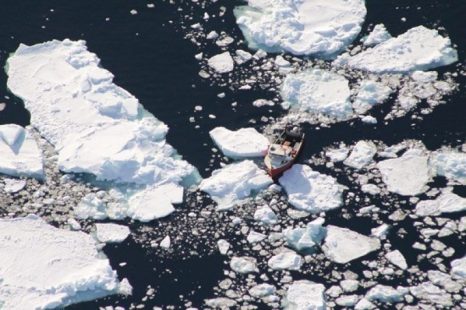
Save our seal(er)s – Jim Winter, St. John’s
The population of harp seals off Canada’s East Coast is about 7.5 million. For over 50 years, marine mammal scientists have studied the herd, and from this science annual quotas are set. During this period, the herd has more than tripled in size. The seals we hunt are fully weaned and independent. Harp seal dames feed their offspring for 11 to 15 days and leave them; they are not helicopter parents. The use of anthropomorphic words like “baby” is merely heart-tugging propaganda. The only study portraying the killing as inhumane was paid for by the International Fund for Animal Welfare and conducted by a group of British vets and was never peer-reviewed, as is customary with studies of this kind. Every other study, including one by the International Veterinary Group, has found the hunt to operate as humanely as any slaughterhouse in the Western World. click here to read the letter 16:11
Extremist Anti Canadian seal hunt doc to be seen by Discovery’s millions of viewers
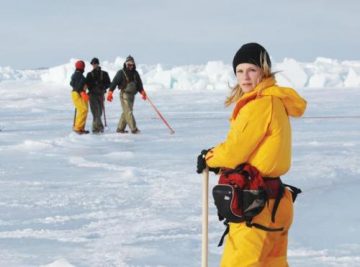 The feature documentary Huntwatch, narrated by actor Ryan Reynolds and produced by the International Fund for Animal Welfare (IFAW), will be airing on Thursday, September 22 in the United States on Discovery Impact at 10 pm, and in Canada on Animal Planet at 11 pm ET. The film follows the history of IFAW’s campaign against Canada’s East Coast commercial harp seal hunt, highlighting the unwavering courage and determination of our founder, Brian Davies. Blending never-before-seen archival footage with more recent interviews, the documentary reveals not only the cruelty and controversy that is commonly associated with the seal hunt, but also shows the beauty and majesty of harp seals in their natural environment, the historical importance of the hunt in eastern Canada, and the political machinations that allow it to continue today. Well. Cumbia! Read the rest here 10:27
The feature documentary Huntwatch, narrated by actor Ryan Reynolds and produced by the International Fund for Animal Welfare (IFAW), will be airing on Thursday, September 22 in the United States on Discovery Impact at 10 pm, and in Canada on Animal Planet at 11 pm ET. The film follows the history of IFAW’s campaign against Canada’s East Coast commercial harp seal hunt, highlighting the unwavering courage and determination of our founder, Brian Davies. Blending never-before-seen archival footage with more recent interviews, the documentary reveals not only the cruelty and controversy that is commonly associated with the seal hunt, but also shows the beauty and majesty of harp seals in their natural environment, the historical importance of the hunt in eastern Canada, and the political machinations that allow it to continue today. Well. Cumbia! Read the rest here 10:27
The Only People Making Money Off the Seal Hunt Are Anti-Sealing Campaigners – Terry Audla
 I understand that PETA brings in about $30 million annually, the Humane Society of the U.S. collects more than $100 million and their executives make six-figure salaries. They and other groups like the International Fund for Animal Welfare are clamouring for this easy target. Who could blame them? After all, it is good money in a competitive charitable market. huffpo Read more here 17:29
I understand that PETA brings in about $30 million annually, the Humane Society of the U.S. collects more than $100 million and their executives make six-figure salaries. They and other groups like the International Fund for Animal Welfare are clamouring for this easy target. Who could blame them? After all, it is good money in a competitive charitable market. huffpo Read more here 17:29
With the seal population increased to about 8 million, protestors of the hunt should spend time considering the impact on the ecosystem.
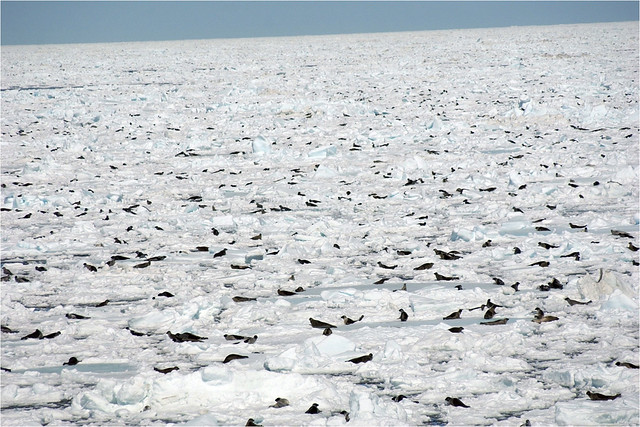 If indeed the sceptics have lessened their stance on the cruelty of the seal hunt, then it is on to the sustainability argument, says the provincial fisheries minister. Keith Hutchings was reacting to recent comments made by Sheryl Fink, the International Fund for Animal Welfare’s wildlife campaign director, as she made a visit to Corner Brook this week. Read more here @westernstar 21:48
If indeed the sceptics have lessened their stance on the cruelty of the seal hunt, then it is on to the sustainability argument, says the provincial fisheries minister. Keith Hutchings was reacting to recent comments made by Sheryl Fink, the International Fund for Animal Welfare’s wildlife campaign director, as she made a visit to Corner Brook this week. Read more here @westernstar 21:48
Fink forecasts end of seal industry
 Sheryl Fink is forecasting the demise of the seal industry, but how that happens should be determined by Newfoundlanders and Labradorians. “It’s not for a group like (International Fund for Animal Welfare) or Pam Anderson or anybody else to sort of provide the solution,” the wildlife campaigns director for IFAW Canada said during an interview at The Western Star in Corner Brook Tuesday. Read more here westernstar 09:46
Sheryl Fink is forecasting the demise of the seal industry, but how that happens should be determined by Newfoundlanders and Labradorians. “It’s not for a group like (International Fund for Animal Welfare) or Pam Anderson or anybody else to sort of provide the solution,” the wildlife campaigns director for IFAW Canada said during an interview at The Western Star in Corner Brook Tuesday. Read more here westernstar 09:46


































